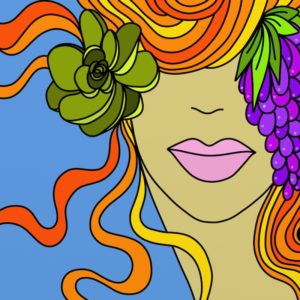Listening to Our Bodies

For several years, I’ve been on a journey of noticing, specifically paying closer attention to what my body is telling me.
After an illness that the doctors say was caused by stress, I dove into the science around what trauma does to the body, reading books like The Body Keeps the Score and Full Catastrophe Living. These ideas resurfaced during grad school as we looked at trauma through both theological and psychological frames.
It was here that I was introduced to a tiny little book, A Little Manual for Knowing by Esther Lightcap Meek, that helped me makes connections between the body and the way we learn and construct knowledge.
Notice, Wonder & Love
Meek talks about how notice and wonder are highly sophisticated acts that are crucial to knowing, and she encourages us to cultivate wonder as a “trained readiness to be astounded.”
I simply adore this! Isn’t this what we want in our experience of life…of learning, love and work? She then argues that “it takes love to notice and wonder” an element I had never considered.
It is brilliant, really…and so true.
Knowing anything (another person, a subject, a skill) requires facing obstacles, struggle and suffering. Without love and desire, it is simply not worth the effort, a concept we see every day when marriages fail and careers dry up. My professor echoed Meek’s challenge when he asked,
What might look like to let go of what we think matters most, to receive the gift reality is wanting to give us? And, how we might foster trust in our body to help us know?
Great questions.
Fostering trust in my body is the exact practice I have been working on since my illness. As someone who historically plows through life, it sometimes takes a crisis for me to pay attention and I am trying to change that. It shouldn’t take a crisis to get my attention, but this pattern is the result of never connecting the idea of noticing and wonder with love. Instead, I have experienced myself as a commodity to fuel the dreams of others, so I mustn’t take too much time to stop, notice and attend.
Choosing Indwelling Over Domination
My current learning ventures that have me growing at break-neck speed include running a business, loving a family, and attending grad school. To indwell all of these ventures is to let the individual moments and the bigger task wash over me instead of attacking them like something I must dominate.
That last sentence makes me giggle. Anyone who knows me well knows my go-to move is to attack things full throttle, but discerning what is going on in my body instead of plowing through is key…and extremely difficult.
Our bodies have a form of knowledge that is different from our cognitive brains. This knowledge is typically experienced as a felt sense of constriction or expansion, pain or ease, energy or numbness. Often this knowledge is stored in our bodies as wordless stories about what is safe and what is dangerous. The body is where we fear, hope, and react; where we constrict and release; and where we reflexively fight, flee, or freeze. If we are to upend the status quo of white-body supremacy, we must begin with our bodies.” Resmaa Menakem, My Grandmother’s Hands.
Slowly, oh so slowly, I am responding to this invitation to notice, listen and trust my body.
It is often in the moments of discomfort where I need to pay the closest attention; wondering where is my body tight, what is clenching, or what’s happening with my breathing? In those times when I pay attention and attend, I never experience regret. I find it is like a muscle that the more I do it, the more trust I have for next time.
I am embodied and placed here with this business, this family, and these studies. Every now and then I get a glimpse of the freedom that comes when I let go of what I think matters most (dominating, winning, excelling etc).
My location stays the same, but something shifts, and I always feel it in my body. I can call it peace – and confidence – and definitely love.
Meek, Esther. A Little Manual for Knowing. Cascade Books, 2014. 20.
Menakem, Resmaa. My Grandmother’s Hands. Central Recovery Press, 2017. 5.
Image by Silvia Enriconi, Adobe Stock
